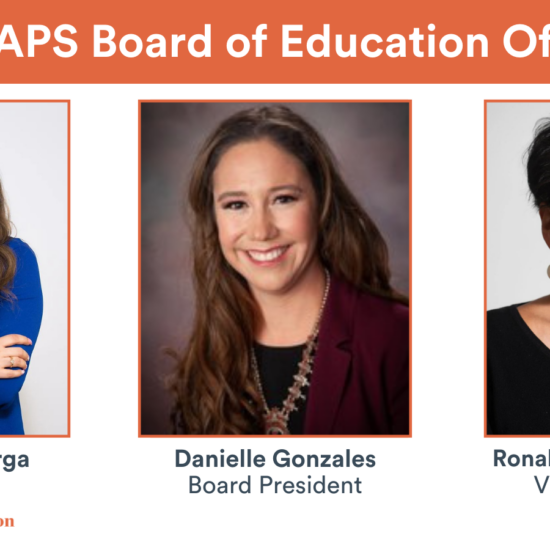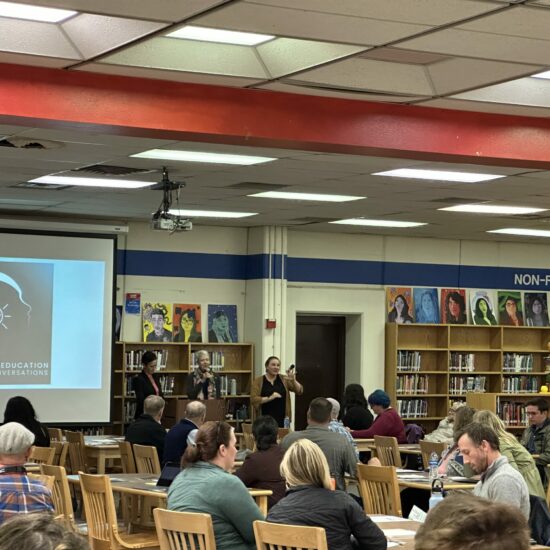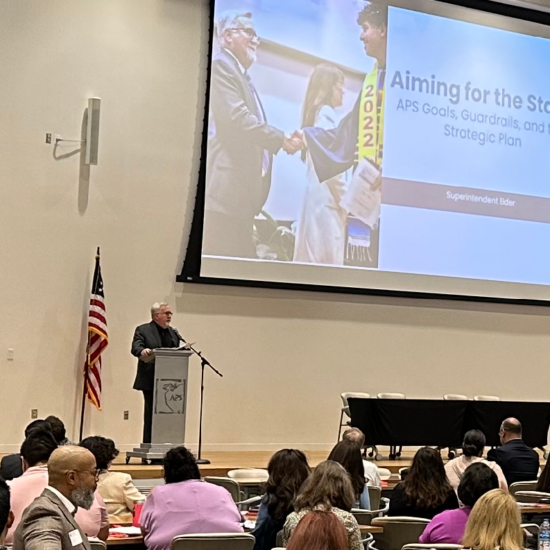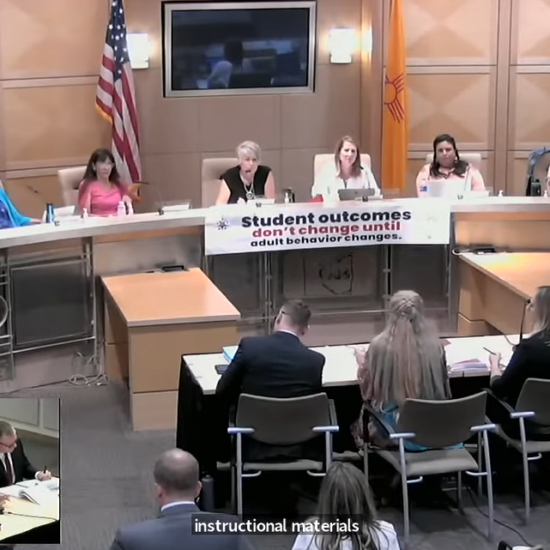
Albuquerque Public Schools staff and leadership of the local teachers union are accustomed to the district’s school board annually rubber-stamping proposed revisions to the collective bargaining agreement.
That is decidedly not what happened Wednesday night. Instead, with four of seven board members poised to reject the agreement between APS and the Albuquerque Teachers Federation after almost four hours of discussion, the proposal was tabled on a 4-3 vote while all sides figure out what to do next.
Next steps were unclear after the meeting. But for the time being at least, the tabling avoids the two parties declaring an impasse, which, staff and some board members said, would create a cascading series of challenges.
“I seriously don’t believe that an impasse is where we want to be because an impasse is really hard on a district, and it’s hard on the employees and it really will not fare well for us (as a board),” board President Yolanda Montoya-Cordova, who wanted to approve the agreement, said late in the meeting.
Danielle Gonzales, whose election last November helped tip the board away from a union-backed majority, said while she appreciated the challenges of an impasse. “I don’t want to make things more difficult for the district. I do want to make things better for our students,” she said.
APS attorney Nathan Nieman said an impasse would probably take the dispute to the state Public Employee Labor Relations Board, which would rule in favor of either the district or the union on each disputed portion of the agreement.
The delay in approval does not affect teacher pay, because hefty raises approved during the winter legislative session take effect regardless.
The four board members opposed to elements of the agreement cited several reasons they could not support it. Gonzales said it gave individual teachers too much control over what is taught which, she said, flies in the face of credible research on closing achievement gaps.
No board members, however, opposed salary increases.
Aligned, standards-based instruction is essential in a district struggling with student learning as APS historically has, she said.
“I do have very significant concerns around the academic provisions in this contract,” Gonzales said. “This is the top thing that I heard about in my community. That is the reason I ran. I’ve shared my experience as a parent and having below grade level not aligned to standards instruction for my own children.”
Related to Gonzales’ concern, other board members said that a host of memoranda of understanding attached to the contract dictate policy to an unprecedented degree, stripping the board of its authority to set and approve district policy.
MOUs attached to the contract – taking it to 170 densely packed pages – include school start times, student loan repayment assistance, snow closures of the district’s three mountain campuses, and several more.
Gonzales said the purpose of the agreement is to address hours, salaries, wages, and working conditions. She said she could support an agreement that “touches on those issues and those issues only.”
Board member Courtney Jackson, also elected last fall, objected to receiving the lengthy and complex document with just five days to review it before being asked to vote. She said the contract continues to grow in length and complexity, and yet New Mexico remains mired at the bottom nationally in terms of academic achievement. “And nothing has changed,” she said.
“We will work through this and come to agreements,” she said. “This is a challenging discussion and a challenging issue. But this is why we are here, why we were elected…to ask challenging, tough questions.”
The four members voting to table the discussion were Gonzales, Jackson, Peggy Muller-Aragon, and Crystal Tapia-Romero. Montoya-Cordova, Barbara Petersen, and Josefina Domínguez favored approving the agreement and voted against tabling.







